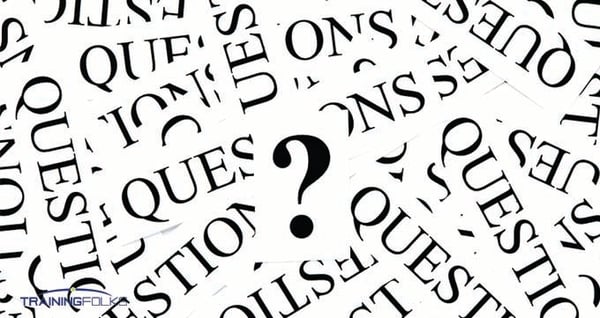A Contract Trainer's Guide to Self Reflection
Tips From Top Corporate Training Consulting Company

It’s easy to get caught up in the day-to-day activities involved with training, leaving yourself no time at all for self-reflection. However, self-reflection is an important part of growing as a trainer. According to the Cambridge Dictionary, self-reflection is “the activity of thinking about your own feelings and behavior, and the reasons that may lie behind them.”
It’s necessary to take a step back and pause so that you can reflect on what’s working and what’s not. Perhaps you were just on a project that didn’t go as well as you would have liked. What went wrong? Or maybe you like the way you are as an instructor. How do you assess yourself? By taking the time to answer important questions such as these, you can gain a better understanding of your strengths, weaknesses, emotions and driving factors.
Use the following guide to help you analyze yourself so that you can begin making improvements.
-
Seek feedback from your recruiter, client, or learners. What would they have liked for you to do differently? Make notes on areas of improvement.
-
Realize that you don’t know everything. There is always room for growth. Can you enhance your industry knowledge or current skills?
-
Be authentic to your training style. Your learners can tell if you aren’t comfortable delivering. Stay true to your delivery style so that you exude confidence.
-
Take responsibility. If you did something incorrectly, own up to it and learn from your mistakes.
-
Be adaptive. Are you so caught up in the training material that you struggle to adapt to group needs and changing situations?
Here are a few questions you should ask yourself:
- How did I help my learners?
- How did I hinder my learners?
- What can I do to help my learners even more?
- What lessons has failure taught me?
- What was I most proud of?
- What are my biggest obstacles and how can I overcome them?
- At what point did I feel the most successful?
- Were my learners excited to be in class?
- What do I want my learners to say about me at the end of the day?
- How well did I communicate to my participants?
- Did I draw my learners out and encourage participation?
Tip: Self-reflection journals are a great way to capture your findings. After each training session, do your best to answer as many of the listed questions as possible. This can be used as a tool to measure your growth. It may be helpful to break your journal up into sections, such as Students, Classroom Management, Time Management, Lesson Objective, etc. so that you can be consistent.
The ultimate goal of self-reflection is to improve yourself as a trainer. Use your findings to review your effectiveness and to take your training to the next level.
For more tips for contract training success follow us on LinkedIn
